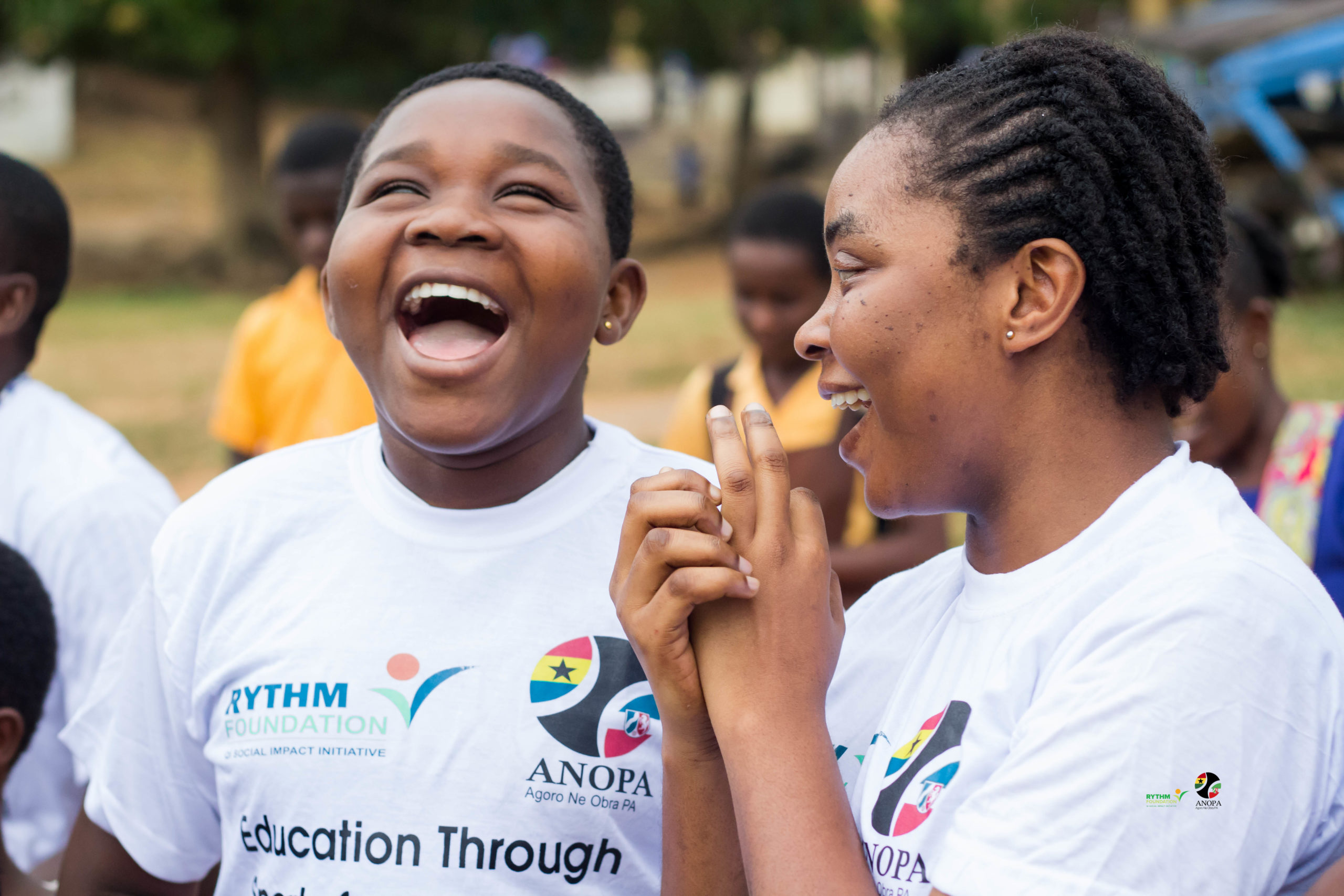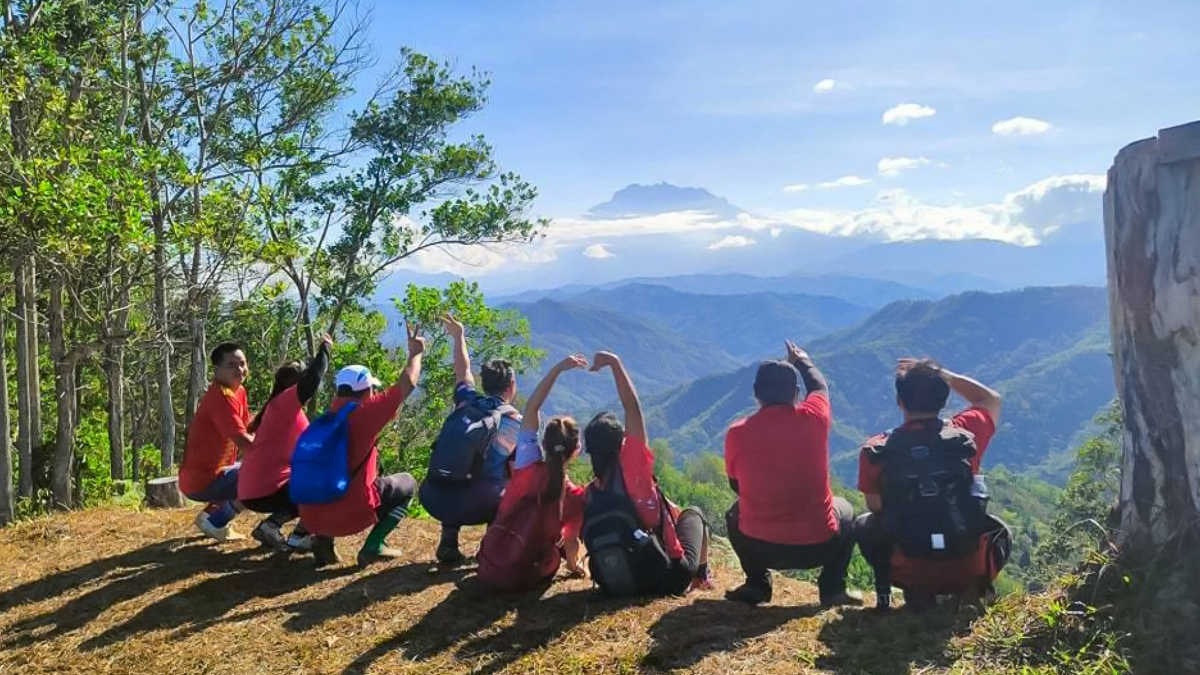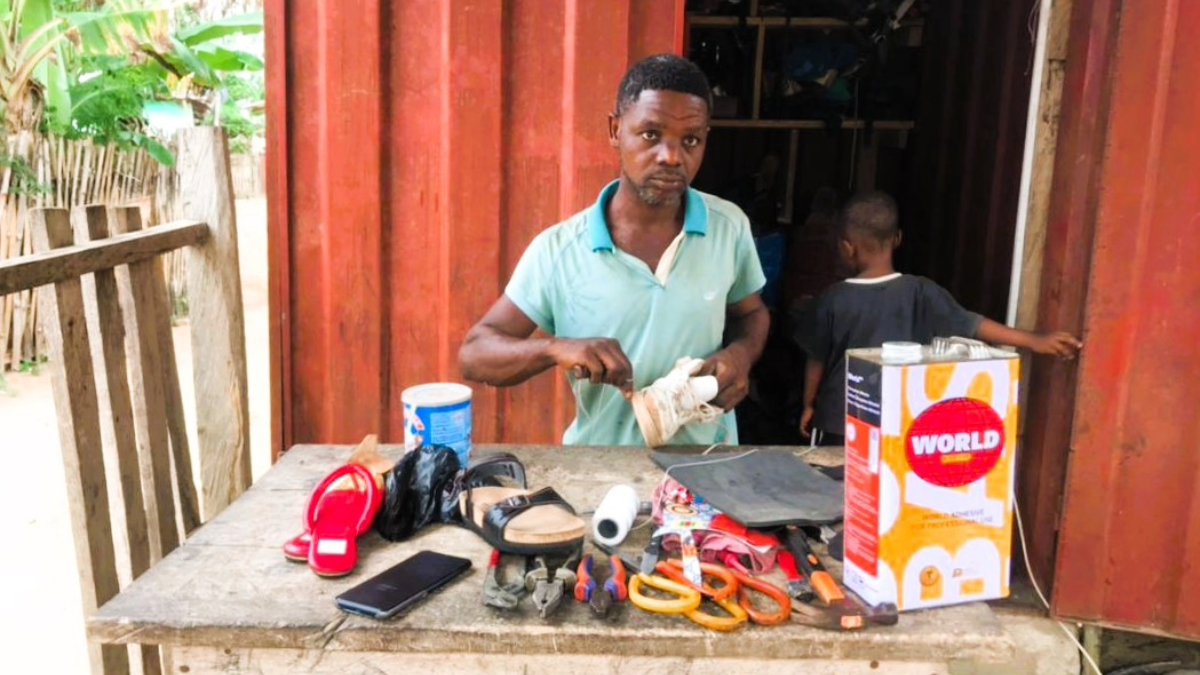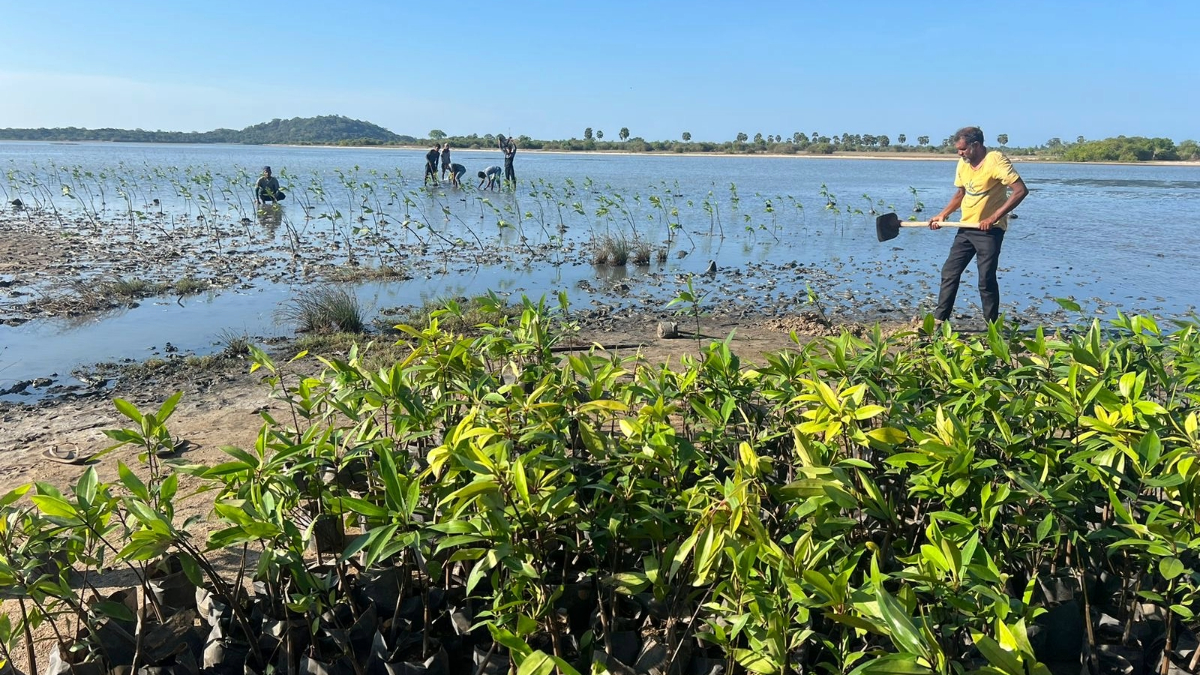As a blind student, Gloria Amoah navigates the world in darkness. Moving around may require carefulness from the 19-year-old, but she has found opportunities to keep herself mobile and active through various sports-based activities in school, helping her connect with other people with disabilities.
Through a partnership between RYTHM Foundation and The ANOPA Project in Ghana, Gloria now attends the Cape Coast School for the Deaf and Blind, allowing her to learn, grow in an inclusive environment.
Ghana’s ANOPA Project: Transforming Lives Through Sports
The ANOPA Project, based in Cape Coast, Ghana, utilises sports to support young people, particularly those with disabilities.
Promoting inclusivity, gender equity, peacebuilding, and aligning with the United Nations’ Sustainable Development Goals (SGD), particularly SGD 10, ANOPA aims to address inequality through sports as a means of community and individual development.
The programme encourages youth to engage with education at the grassroots level, fostering the skills necessary for a brighter future.
Supporting Young People with Disabilities Through Sports
ANOPA’s executive director, Ernest Appiah, noticed that many deaf and blind children were being left out by society and lacked development opportunities.
Initially focused on general youth engagement, the ANOPA Project evolved into a more inclusive initiative for deaf and blind children, demonstrating that disability and sports coexist.
ANOPA opened its doors to youth like Gloria, creating sports programmes that allow them to play alongside their peers without disabilities.
Gloria experienced first-hand how ANOPA includes sports for people with disabilities in its programmes. Her favourite activities are recreational games, which help break barriers and encourage inclusivity among students. Participating in them gave her strength.
“At first, I didn’t dare to be in public. But now, after being involved in the fun games, I can talk and express myself. I can relate well with my new friends, including those who are not blind,” she says.
Gloria’s friend Lucy Otoo, 21, is also a blind person. She also benefits from this partnership and appreciates the chance to study in an inclusive environment that supports people with disabilities.
“Since coming to this school, I have made many new friends, and some of them are different from me. I always look forward to Tuesdays and Wednesdays when the ANOPA coordinators organise recreational games,” she says.
“Despite being unable to see, I feel included by the others during the games session,” Lucy, who hails from Takoradi in the western region, adds.
Opening Closed Doors
Gloria and Lucy stay at the school dormitory because their homes are too far for daily commuting. An institution that brings hope to young people with disabilities, particularly those with visual and auditory impairment, the school teaches sign language, braille reading, and other basic English, Mathematics and Science lessons.
The Cape Coast School for the Deaf and Blind is a government school with a population of about 800 students. According to Ernest, over 90% of the population is from vulnerable backgrounds and communities with limited resources.
Although the school is free and open to the public, expenses for the Parent-Teacher Association, uniforms, and educational materials cost too much for children from families facing economic challenges.
With support from RYTHM Foundation, girls like Lucy and Gloria are provided educational materials, ensuring they have the resources they need to thrive in their classes. They can participate in ANOPA’s activities that bridge disability, sports, and programs that make them healthier and more confident.
Enduring Commitment to Inclusivity
This initiative not only fosters individual growth for youth like Gloria and Lucy but also contributes to broader social progress. By creating supportive communities, ANOPA is helping to shape a more equitable future, aligning with Sustainable Development Goals related to education, gender equality, and social inclusion.
These young people’s renewed hope and confidence signal essential strides toward a more inclusive society. To learn more about ANOPA and RYTHM’s partnership, explore our efforts in Ghana.





